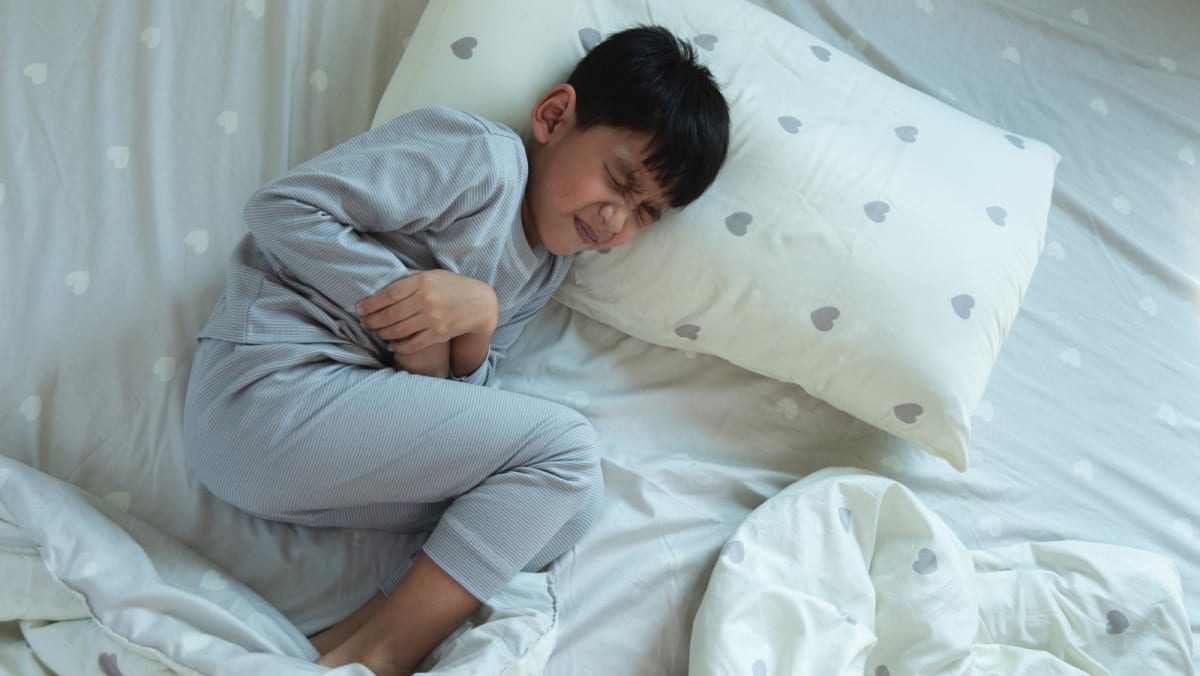Dr Ho encouraged parents to get familiar with basic over-the-counter medications for symptoms like fever, blocked or runny nose or diarrhoea. “These symptoms can often be treated safely at home and especially when they crop up in the middle of the night,” she said.
However, there are some exceptions and red flags to watch for.
Seek medical attention at the Children’s Emergency if your child is under three months old and has a fever of 38 degrees Celsius or higher, or if the child shows signs of irritability such as persistent crying, lethargy with poor feeding, or if the skin looks pale or mottled. This is because infants are at a higher risk of serious bacterial infections, explained Dr Pandey.
A fever lasting more than five days should also be evaluated to determine if the initial viral fever is complicated by a second bacterial infection, she added.
Fever that hits 41 degrees Celsius could indicate a serious infection. That said, the height of a fever does not always correlate with the severity of the child’s illness, said Dr Pandey.
She elaborated: “For instance, if the child has a high fever but their energy level and appetite appear well in between spikes in temperature, they could be seen by a family doctor. Conversely, children with low-grade fever but presenting with severe lethargy or dehydration should be seen at the Children’s Emergency immediately.”
When it comes to gastro symptoms, Dr Ho said that persistent vomiting is more concerning than persistent diarrhoea as the former makes it harder for the child to stay hydrated. Check your child’s urine output – there should be at least three to four urine output in 24 hours.
She advised waiting at least 30 minutes after vomiting before offering some fluids (ideally, non-carbonated isotonic rehydration fluids) in slow increments. “If the child is unable to keep fluids in over three consecutive attempts and is starting to become lethargic, seek medical advice,” she said.
Still unsure? Dr Pandey suggested trying the KKH Urgent Paediatric Advice Line (U-PAL), a chatbot service that guides caregivers on common paediatric conditions and when urgent medical attention is needed. However, it is not a replacement for a doctor’s advice and should not be used for pre-existing or chronic health conditions in children.
